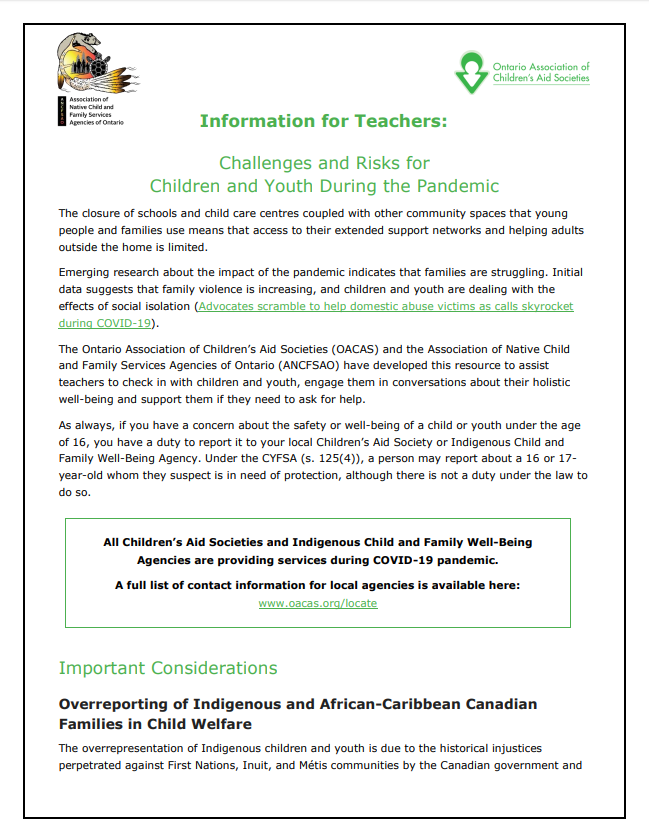 The Ontario Association of Children’s Aid Societies (OACAS) and the Association of Native Child and Family Services Agencies of Ontario (ANCFSAO) have developed a resource for teachers to assist with their virtual classroom interactions during the COVID-19 pandemic.
The Ontario Association of Children’s Aid Societies (OACAS) and the Association of Native Child and Family Services Agencies of Ontario (ANCFSAO) have developed a resource for teachers to assist with their virtual classroom interactions during the COVID-19 pandemic.
With the closure of community spaces, young people and families have limited access to their extended support networks and other helping adults outside the home. Although teachers have always been in a unique position to help ensure the safety and well-being of Ontario’s children and youth, during these unprecedented times they are an especially important connection for young people. Emerging research about the impact of the pandemic indicates that families are struggling. Initial data suggests that family violence is increasing, and children and youth are dealing with the effects of social isolation.
We are hoping the resource we have created, which includes a set of practical strategies for teachers to use, will help them to check in with their students, engage them in conversations about their holistic well-being, and support them if they need to ask for help.
As always, teachers are reminded that if they have a concern about the safety or well-being of a child or youth under the age of 16, they have a duty to report it to their local Children’s Aid Society or Indigenous Child and Family Well-Being Agency. Under the CYFSA (s. 125(4)), a person may report about a 16 or 17-year-old whom they suspect is in need of protection, although there is not a duty under the law to do so.
The resource also reminds teachers of several important considerations when making a report to child welfare, including the overrepresentation of Indigenous and African-Caribbean families in the system and the importance of checking their bias. It can be viewed in English here and in French here.